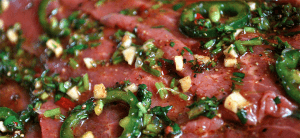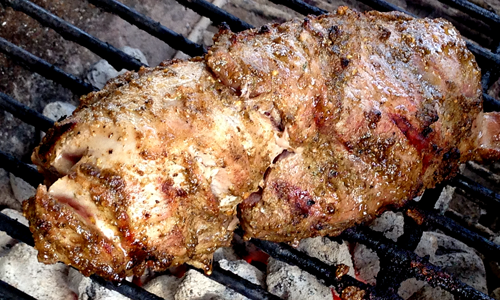People can be extremely finicky when it comes to healthy grilling and how they want their meat prepared. Some go the rare route, some medium, and some even … burnt. I can remember vividly how my grandfather would request his meal be prepared well-done.
“Paw-paw, how do you want your steak?” we’d ask. In a heavy South Mississippi accent, he exclaimed “Bouy-nt!” There would be laughs all around, but the affects of charred meat on the grill could be unhealthy, even cancer causing — nothing to laugh about.
Bad carcinogens
Many folks out there enjoy a nice burn on their grilled meat, either in the form of a well-done hamburger, a dog or sausage with a nice charred crust or those gorgeous grill marks on a steak or fresh slab of fish.
Regularly consuming well-done or charred meat may increase your risk of developing pancreatic cancer by up to 60 percent, according to a University of Minnesota (Carcinogenesis and Chemoprevention Program) study that tracked the eating habits of more than 62,000 people over a nine-year period.
The reason … Grilling protein-filled foods such as meat and fish at a high temperature causes chemicals called heterocyclic amines, or HCAs, and polycyclic aromatic hydrocarbons, or PAHs, to form. These carcinogens can cause changes in the DNA that can lead to cancer … and that’s not good.
Nasty stuff
While frying and broiling produce these chemicals as well, those charred bits at the edges of barbecued meat contain HCAs in their purest state.
HCAs, which are also found in cigarette smoke, have been shown to cause cancer in organs including the stomach, colon, liver and skin — but only in animal studies, according to a report in Health.com.
PAHs are formed when juices from meat drip onto coals or other hot surfaces and create smoke. The smoke contains these carcinogens, which are deposited onto the surface of meat as it swirls around the food.
There are some methods to reduce the risk of harmful carcinogens while grilling.
Clean the grill
Scrape down the grill when done cooking to get rid of burnt food and juices that can build up. A dirty grate increases the risk of transferring those leftover chemicals to food the next time one grills.
Marinate your beef

Scientists aren’t sure why, but a marinade acts like a barrier between your meat and carcinogens. The American Institute for Cancer Research says marinating meat for at least 30 minutes can reduce the formation of HCAs.
Studies have shown that marinating your meat before grilling can decrease HCA formation by up to 96 percent. There is even some evidence that the types of marinades used could increase or decrease the risk of HCA formation.
Researchers from Kansas State University (2008) and The Food Science Institute who found a steak cooked in a Caribbean marinade had an 88 percent drop in HCAs, while an herb marinade accounted for a 72 percent drop and a Southwestern mixture had a 57 percent drop in bad compounds. Click here for more information on marinades.
What about veggies
Unlike meat, vegetables don’t create carcinogens when they char, meaning one can still enjoy that grilled flavor and reduce cancer risk. Swap meat for veggies, veggie burgers, or fruit, all safer choices because HCAs and PAHs form in muscle proteins.
In fact, phytochemicals (antioxidants) found in fruits and veggies may actually reduce certain types of cancer. So grill away!















